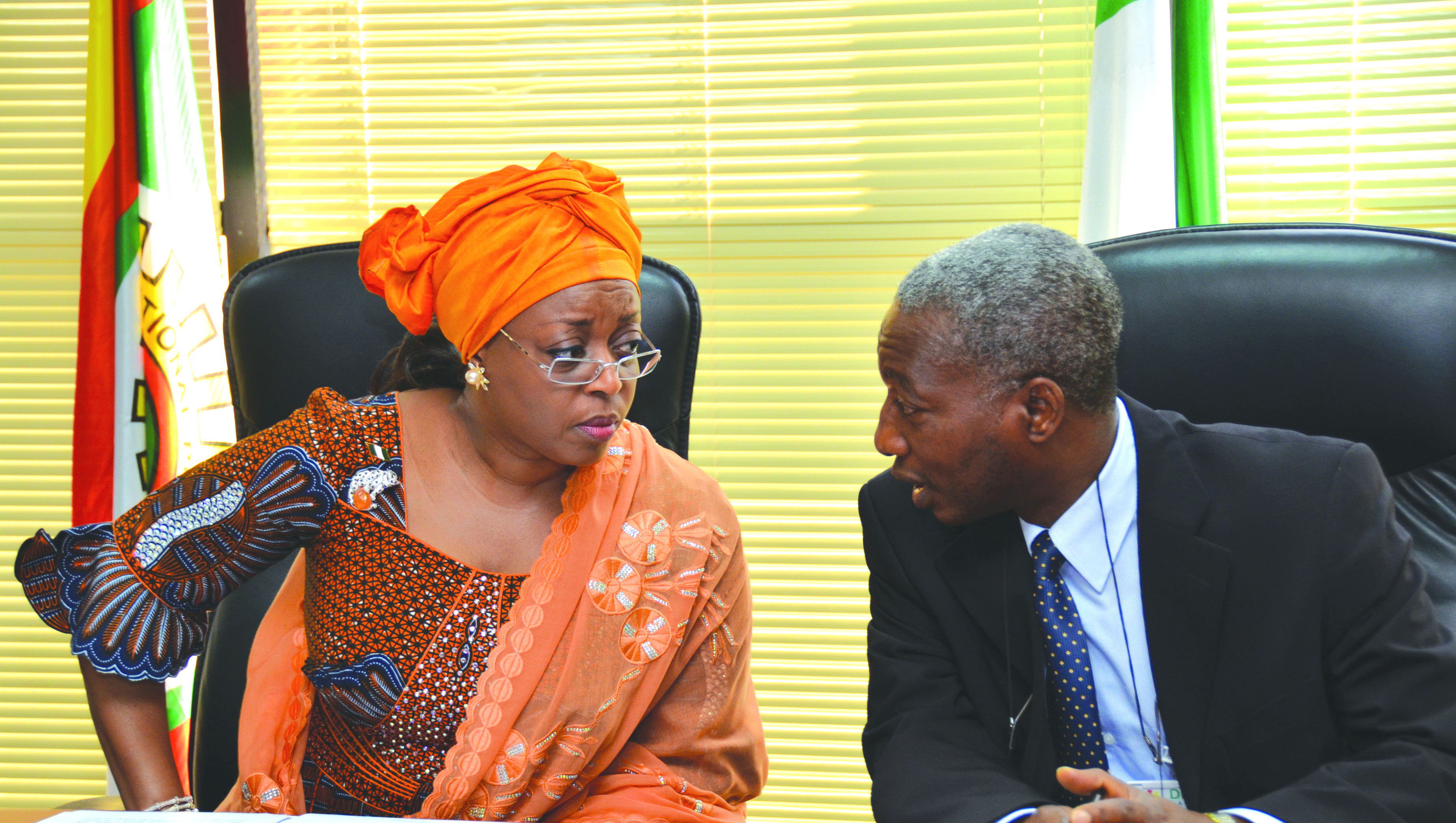[tweet][digg][stumble][Google][pinterest][follow id=”DER29709692″ size=”large” count=”true” ]
By Pita Ochai
The inadequacy of Standard Operating Procedure (SOP) for staff of oil and gas companies operating in the country has been identified as one of the major causes of incidents and accidents in work environments. Mrs Diezani Alison-Madueke, Minister of Petroleum Resources, made this known during the 16th International Health Safety and Environment Biennial Conference on the oil and gas industry in Nigeria tagged “Innovative Approach Towards Emerging Safety Challenges.” According to her, the absence of adequate literature on SOP in respect of complex facilities being operated by relatively inexperienced workers has been responsible for many incidents and accidents in the industry.
The minister who was represented by George Osahon, Director of the Department of Petroleum Resource (DPR) said that companies should not only be compelled to provide adequate literature for their staff but the DPR should also carry out routine Technical Safety Review to ensure compliance. She said a review of the number and nature of accidents in the last few years confirmed genuine belief that safety control in the industry is not only necessary but needs new approaches and emphasis. “Vision 2020 seems to be on course as Nigeria was recently declared the largest economy in Africa, most of which is nonetheless predicated on the oil and gas industry. The position of Nigeria as a major player in the oil and gas industry is ,however, threatened by security challenges which has made oil theft and pipeline vandalism a common topic of discussion among industry players,’’ she said.
The petroleum industry worldwide, she said, is dynamic and highly organised through its advanced standards, codes of practice and control system, adding that in Nigeria, control of the industry is founded on legal frameworks that are predicated on international standard. “In furtherance of government’s efforts at deepening the participation of indigenous investors in the sector, the president has graciously approved the establishment of a Modular Refinery, an initiative that would soften local supply of petroleum products, especially kerosene which does not require elaborate technology to produce,” she said. According to her, government believes that the short project cycle, low cost and flexibility for establishing modular refineries would encourage proper investment in refinery operation and minimize crude oil theft and operation of artisanal refineries. She said that against this background, aspiring modular refinery operators would be scrutinized and granted licenses to install and operate such facilities.
Alison-Madueke said that the ministry on its part will continue to set agenda that will guarantee effective safety of operations and suitable environmental development at all times.
Mr George Osahon, Director, DPR said that the topic was chosen to raise consciousness and contemporary issues on effective safety controls in the Nigerian oil and gas industry. Osahon said that the agency will continually work with industry stakeholders to put forward such policies that will ensure long-term protection and sustenance of a safe working environment by keeping pace with novel industry trends and technologies.
The number and frequency of oil spills, he noted, was actually on the decrease before the recent hike in pipeline vandalism and crude oil theft. “DPR has successfully instituted appropriate environmental performance evaluation mechanism to determine the extent of compliance on the part of operating companies. It is our conviction that your continued contributions to HSE initiatives will reposition the industry and move HSE pursuit to higher levels. On our part we will continue to encourage contributions towards increased development HSE competence and practices in the Nigerian oil and gas industry,” he said.
[divider]


